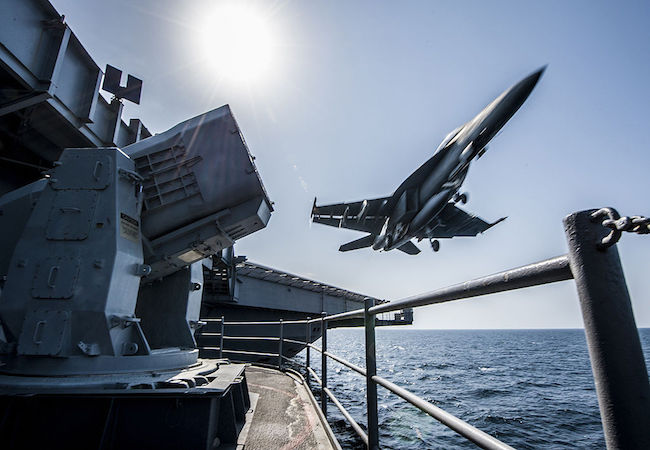Do individual politicians matter?

By David Swanson
It is entirely possible that President Al Gore would not have attacked Afghanistan or Iraq. President Henry Wallace might very well not have nuked Hiroshima or Nagasaki. President William Jennings Bryan almost certainly would not have attacked the Philippines.
Presidents are pushed into war and held back from war all the time, but they also do some pushing and pulling of their own. Within days of Germany’s surrender in World War II, Winston Churchill proposed recruiting German troops into a new UK/US war on the Soviet Union. The idea went nowhere with his own government or allies, except to become the Cold War. But every crazed idea he’d had for years prior to that moment had been deemed acceptable and acted upon, and someone else might not have had the same ideas.
Do the sorts of powerful insiders epitomized by the Council on Foreign Relations usually get their way? Is the United States an oligarchy? Are small differences between electoral candidates magnified and exaggerated? Do both major political parties in the United States back essentially the same sort of militarism? Does a quasi-permanent shadow government within the Pentagon, CIA, State Department, etc., sometimes circumvent and overrule presidents? Yes, of course, all of those things are true. But individuals also matter.
They would matter less in a democracy. If Congress decided on war as the U.S. Constitution requires, or if the public voted on war as the Ludlow Amendment would have required, or if the United States gave up war as the Kellogg-Briand Pact mandates, then the militarism in the mind of one individual would not decide the fate of so many lives and deaths. But that’s not reality now.
A President Lincoln Chafee or a President Bernie Sanders or a President Jill Stein, rather than a President Hillary Clinton or a President Donald Trump, would be one factor among many weighing to some degree against the likelihood of more and larger and more dangerous wars. Whether the chance and possible benefit of electing a better president is worth diverting resources from other anti-war work into the national circus of election obsession is a separate and much more complex question.
This point, that individuals matter, is made in the new book Why Leaders Fight by Michael Horowitz, Allan Stam, and Cali Ellis. They go up against the academic tradition of attempting to explain war decisions through whatever process can most resemble the physical sciences. That tradition has steered far clear of anything as messy as a human being, preferring to ponder game theory or to hunt for non-existent correlations between war and population density, resource scarcity, or anything else that can be quantified.
Having brought the individual back into consideration, the authors of Why Leaders Fight immediately attempt to make that resemble as closely as possible a mathematical equation. Was this national ruler someone who had been in the military, and was he or she in combat? What was their first experience with war? What is their education level? What is their age? What previous job did they hold? Were they raised by good parents? Were they raised wealthy or poor? What was their birth order? Et cetera.
Will all such data ever allow a calculation to reliably predict war mongering or peacefulness? Of course not. Will examinations of enough past leaders along these lines open our eyes to some areas for concern or reassurance? Perhaps. But can such scientistic studies reach the level of being a better guide to what a political candidate might do than is an examination of what that candidate has done and said? I doubt it.
A careful reading of candidates’ platforms, speeches, and casual remarks, including what is given prominence and what is omitted, and weighed against what they’ve actually done in the past, takes one quite far. Add in who’s funding them, what party they’ve sworn allegiance to, how they relate to government and media insiders, how they relate to foreign leaders, how they handle mistakes, how they deal with crises, and one can — I think — predict fairly accurately which candidate is going to be a minor or major weight against a war that powerful interests demand, and which candidate is going to be easily pushed into war or, in fact, rush to create one at the earliest opportunity. It’s not as though George W. Bush and Harry Truman and William McKinley hadn’t advertised what sort of things they planned to do.
Academics bent on making the social sciences into real by-god sciences left out more than the individual politician after all. They left out the wider culture. An older politician eager to make his or her mark before their time is up won’t create wars in a culture that honors making peace. An official whose childhood and background statistics suggest they will take great risks would have to take none at all to go along with the routine militarism of the current U.S. government, but would challenge the whole military industry and the whole communications industry by attempting nonviolent solutions to crises. Disarmament is considered risky in U.S. culture, making questionable the expectation that risk-taking personalities will promote militarism. In other words, the interpretation and weighting of the data has to change so drastically with the culture that one is better off just looking at the culture.
President Obama would have heavily bombed Syria in 2013 if not for the weight of U.S. culture against it. President John McCain would not have been free to develop a kill list and a drone murder program without the sort of intense public opposition that meets Republicans who do such things. There can be no question that individuals matter, especially large numbers of individuals actively demanding something. Nor can there be any question that one of those individuals who matter is you.




